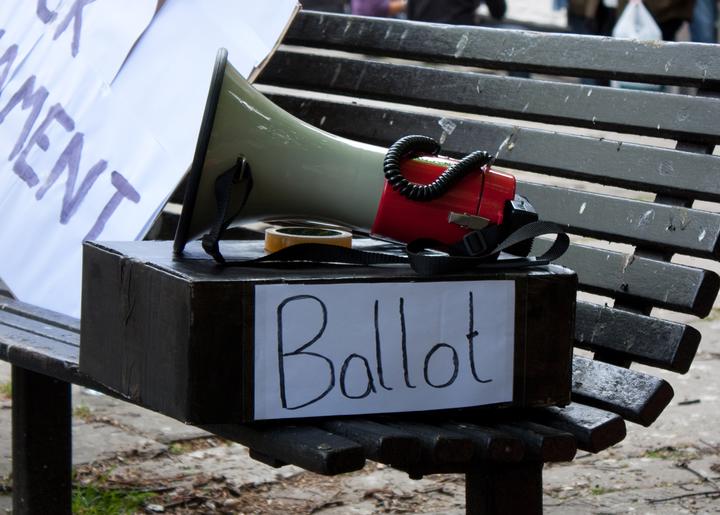Distinctiveness in the Parliamentary Arena: Consequences for Democratic Legitimacy and Vote Choice
 Image: Ballot Box and Bullhorn by Steve and Clare
Image: Ballot Box and Bullhorn by Steve and ClareModern developed democracies are representative, electoral democracies. Choice and credible opposition are their essential attributes. Political parties that compete at elections offer the choice to voters, but the question is whether there is enough distinctiveness between the parties for this choice to be meaningful. Previous studies have looked at parties’ distinctiveness in the electoral arena. Developments in parliaments, on the contrary, have been largely overlooked.
There are increasing concerns about political parties’ cooperation across the aisle in legislatures that results in a blurring of distinctiveness between governing and opposition parties. For that reason, meaningful choice in the election process might no longer be perceived as available by voters, leading to the lack of clarity of responsibility and alternatives. Issues with accountability and representation will reflect on citizens’ willingness to participate in the political process and on their evaluation of a political regime. It will also be decisive for their satisfaction with it and its performance. A lack of support for the democratic procedure will question the legitimacy of political outcomes. Consequently, it might compromise the state’s overall authority.
This project aims at finding out whether and how voters react to political parties’ cooperation across the aisle. It also strives to analyze consequences that lack of distinctiveness can have for established parliamentary democracies. The project will use longitudinal analysis of survey data spanning from 1960s to 2010s from The Netherlands, United Kingdom, Canada and Denmark, and a multi-country conjoint survey experiment to study the effect of opposition blurring on democratic satisfaction, trust in parliament, electoral turnout and vote choice.